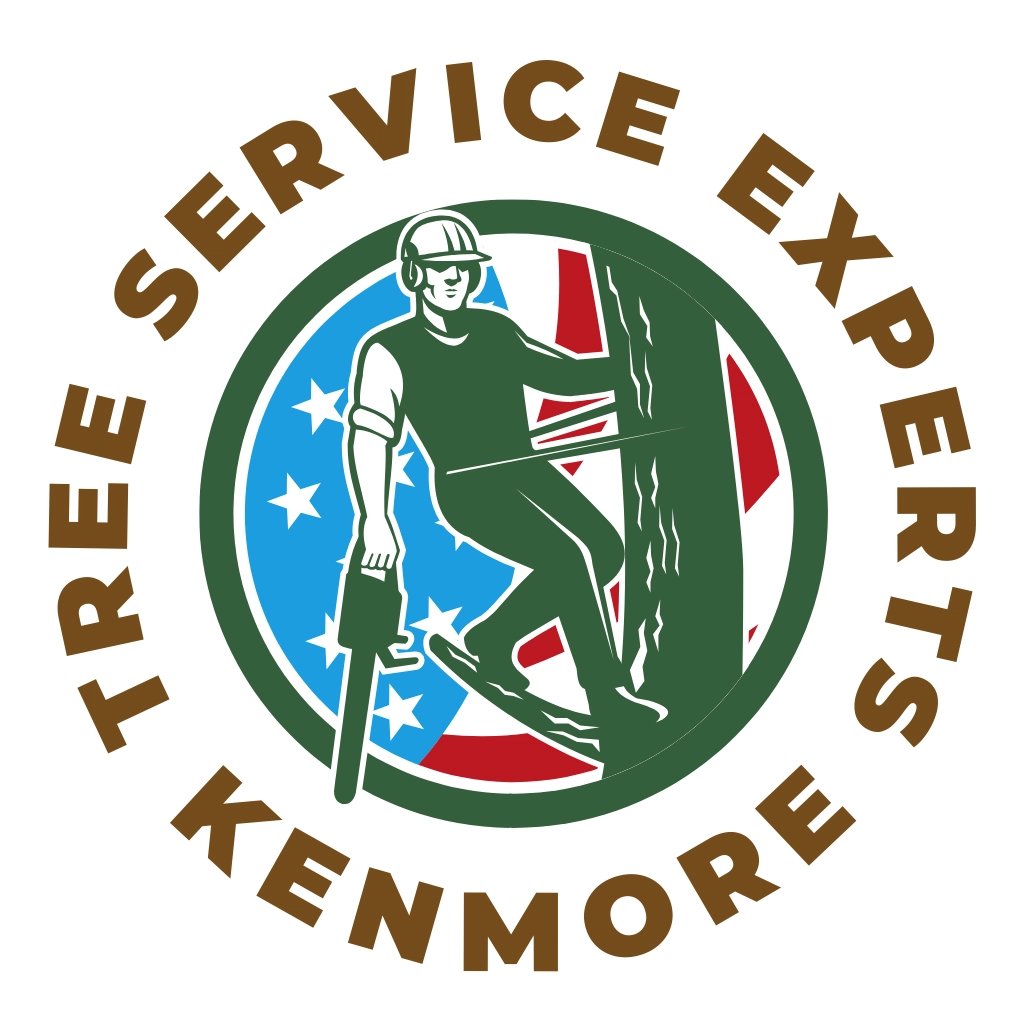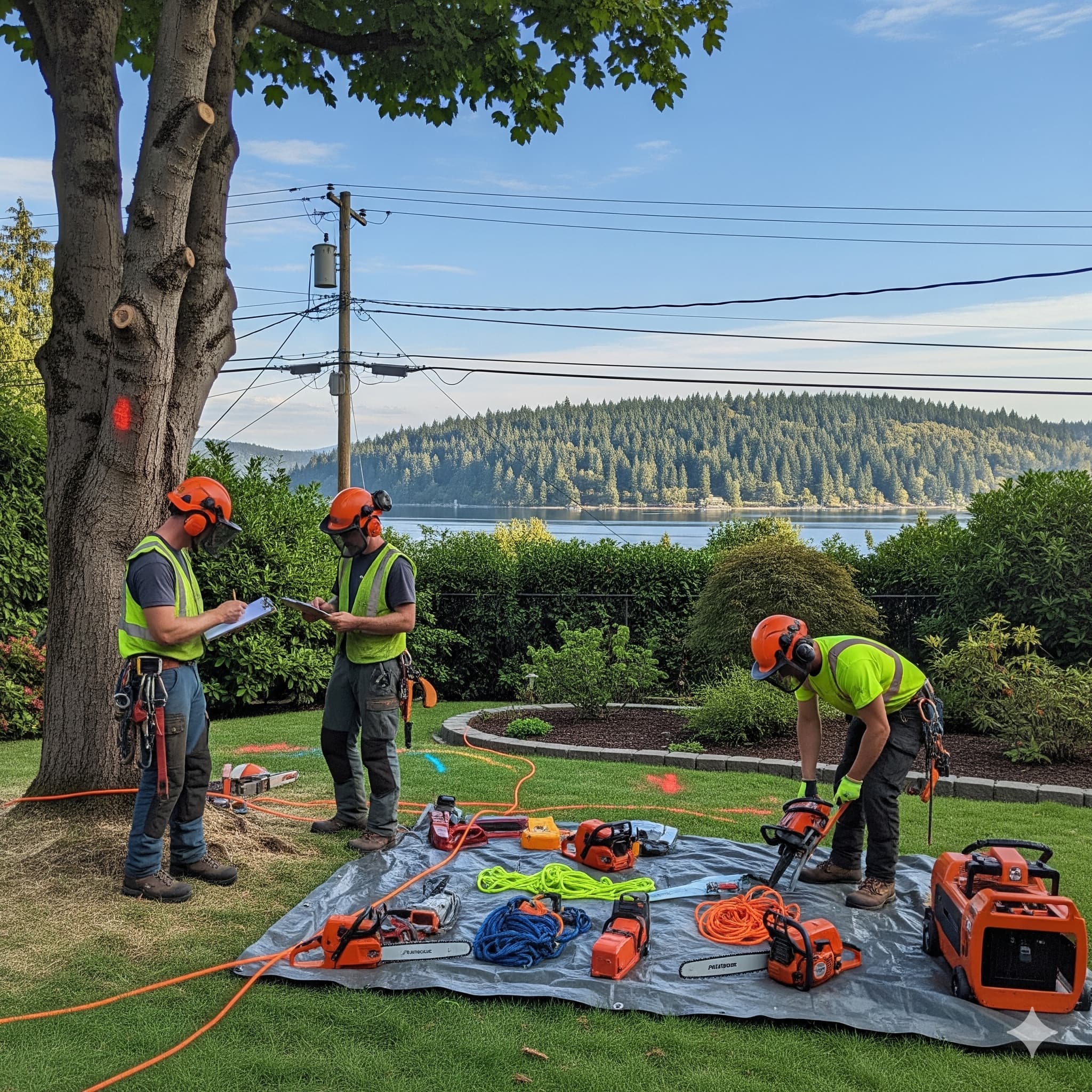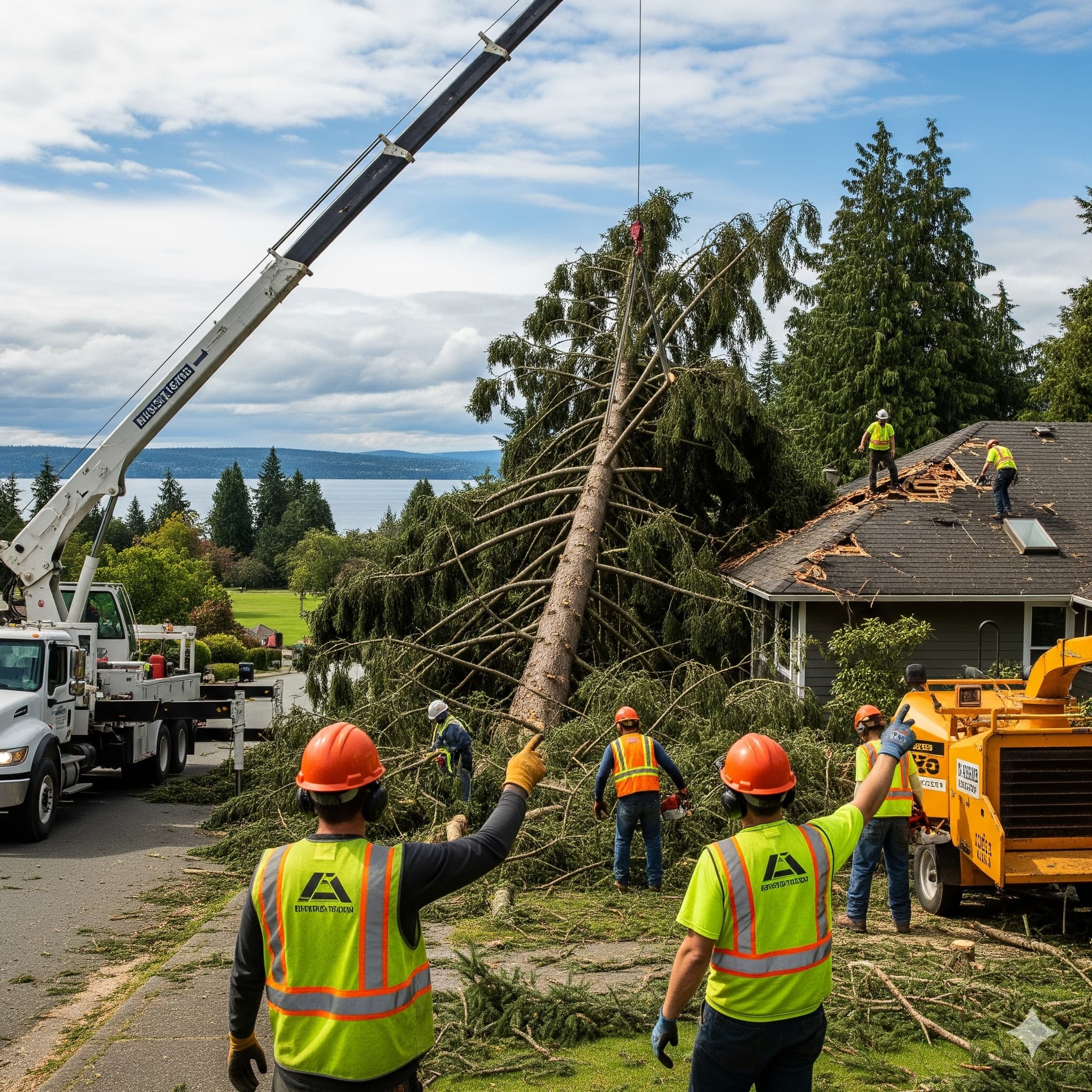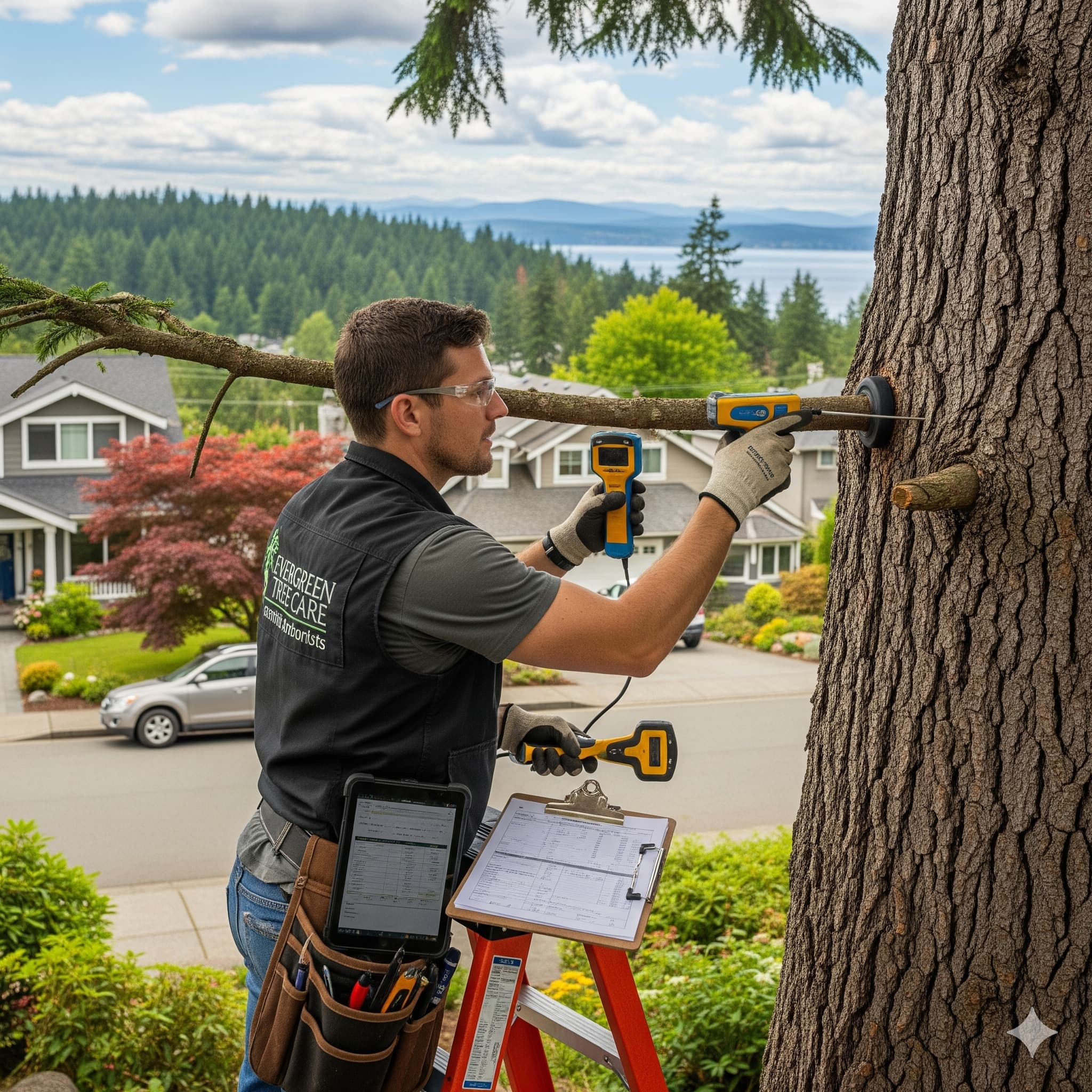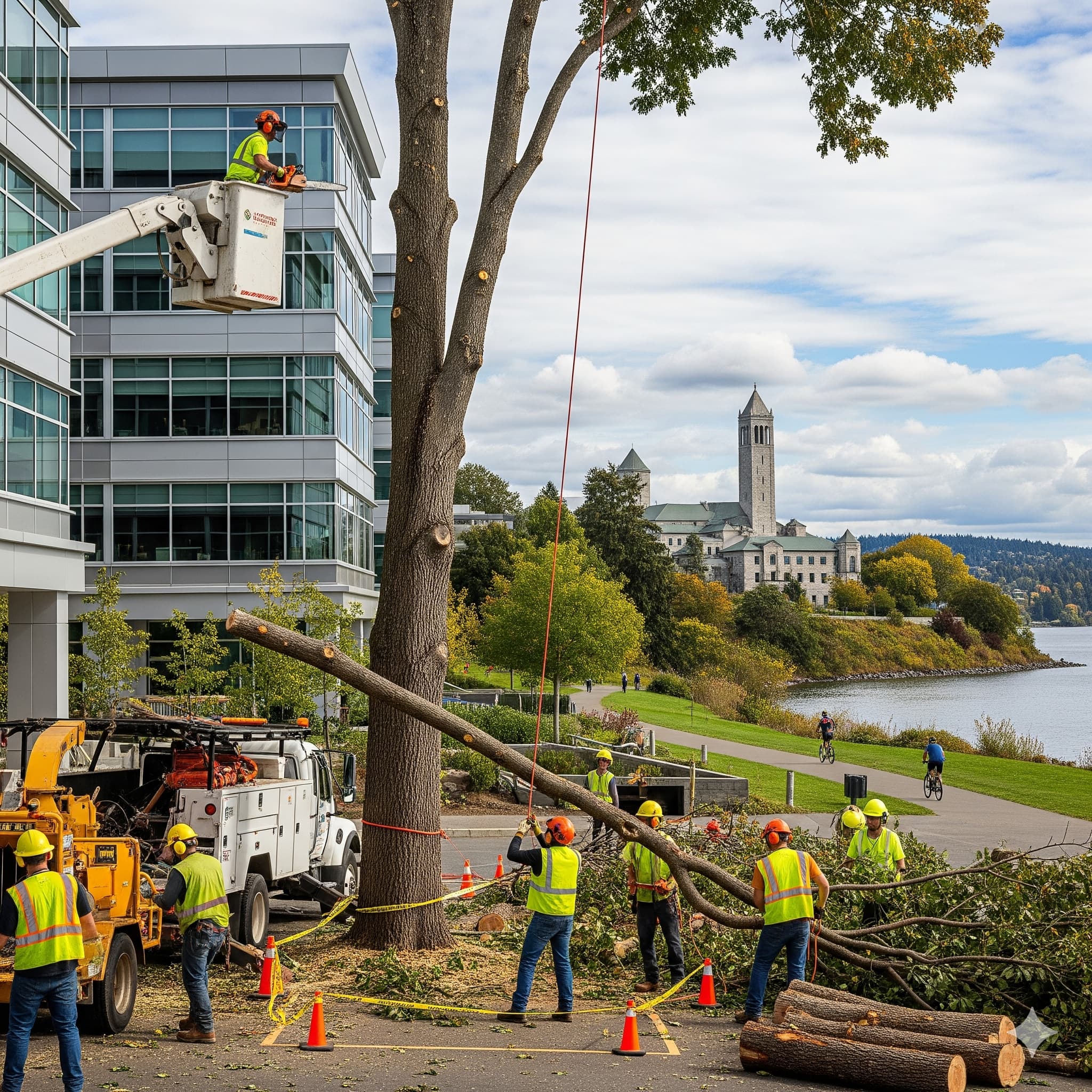
Understanding Tree Root Systems: A Guide for Kenmore Property Owners
Contrary to common belief, tree root systems don’t mirror the branch structure above ground. Instead, they typically spread outward, creating an extensive network that can extend two to three times the tree’s canopy width. In Kenmore’s rich soil conditions, these root systems thrive and adapt, sometimes in unexpected ways that can impact your property’s infrastructure.
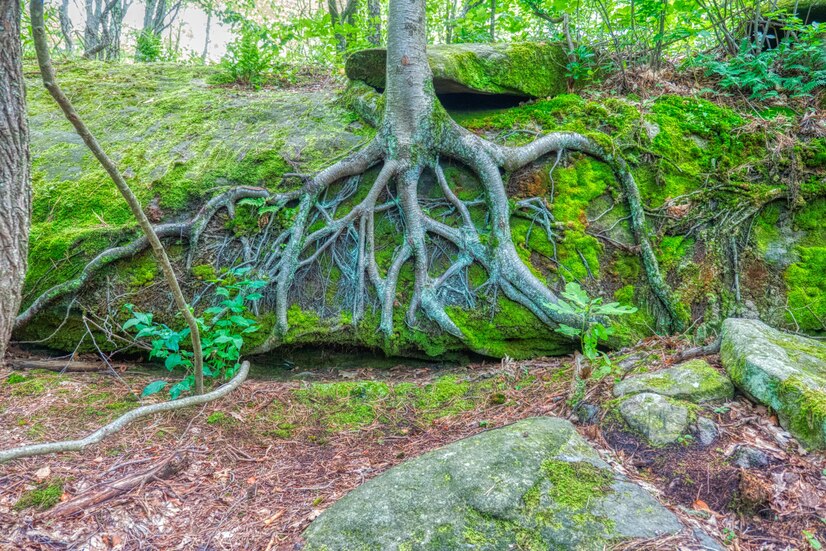
Impact on Your Property's Infrastructure
Root systems can significantly affect your property in various ways. As roots grow and expand, they may interfere with underground utilities, foundation walls, and hardscape features. In Kenmore’s residential areas, we frequently encounter situations where tree roots have lifted sidewalks, cracked driveways, or even affected home foundations. Understanding these potential issues early can help prevent costly repairs in the future.
Signs of Root-Related Problems
There are several indicators that might suggest root-related issues on your property. Surface roots breaking through your lawn can create tripping hazards and make maintenance difficult. You might notice uneven ground near trees, cracks in concrete structures, or problems with plumbing systems. Inside your home, unexplained cracks in walls or floors could signal root interference with your foundation.
Preventive Measures for Root Management
Taking proactive steps in root management can save considerable time and money. Strategic planning when planting new trees is essential – consider the mature size of the tree and its root system when choosing planting locations. For existing trees, regular monitoring and maintenance can help identify potential issues before they become severe problems.
Professional Root Management Solutions
Professional arborists can provide various solutions for root-related challenges. Root pruning, when done correctly, can help manage aggressive root growth without compromising tree health. Installation of root barriers can protect structures and hardscapes from future root damage. Sometimes, soil modification or aeration might be necessary to encourage deeper root growth and reduce surface root problems.
The Importance of Professional Assessment
While some root issues might seem obvious, others require professional expertise to identify and address properly. Our certified arborists use advanced techniques and equipment to assess root health and potential risks. This might include ground-penetrating radar technology to map root systems or soil analysis to understand growing conditions.
Seasonal Considerations for Root Care
The Pacific Northwest’s distinct seasons require different approaches to root care. During our wet winters, monitoring soil drainage becomes crucial to prevent root rot. Spring and summer might require additional attention to watering, especially for younger trees, while fall is often ideal for root maintenance work before the ground becomes too saturated.
